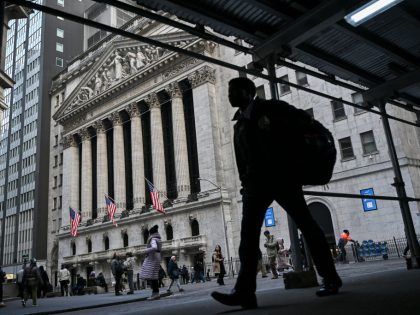
Under Capitalism, Democracy Stops at the Economy
In Escape From Capitalism, economist Clara Mattei offers an uncompromising defense of a Marxist account of society and makes the case for democratic control of the economy.
Stephen Maher is assistant professor of economics at SUNY Cortland and coeditor of the Socialist Register. He is the coauthor of The Fall and Rise of American Finance: From J. P. Morgan to BlackRock with Scott Aquanno and author of Corporate Capitalism and the Integral State: General Electric and a Century of American Power.

In Escape From Capitalism, economist Clara Mattei offers an uncompromising defense of a Marxist account of society and makes the case for democratic control of the economy.

As capital ratcheted up its assault on labor in the 1990s and Democrats embraced a neoliberal agenda, some labor unions launched their own political party.

In Counterrevolution, Melinda Cooper reads the 1970s economic crisis as an elite revolt rather than proof of the New Deal order’s unsustainability. Her arguments rely on a rejection of Marxism as an analytical framework and of socialism as a political horizon.

Globalization is a project of class war whose destructive effects have driven many US workers into the Trumpian right. The Left needs a real response to the problems raised by global capital mobility — and that should start with capital controls.

Analysts of financialization often present it as a sign of capitalist decline, yet the rise of finance has actually strengthened capitalist domination. The only way to challenge this power is by converting finance into a public utility.

Finance’s dominance over the economy isn’t a deviant evolution of a “good” industrial capitalism. Finance and industry are interdependent — meaning solving problems like inequality and climate change will require a far-reaching democratization of the economy.

To sustain capitalism, otherwise competitive businesses have to do something unnatural: cooperate with each other. The state plays a crucial role in fostering this class discipline. We, on the other hand, have to build our own power.

Joe Biden’s recent spending spree can make the United States a less miserable place. But the president has no interest in bringing about the structural change that would weaken the power capitalists have over workers.

The riot at the Capitol on Wednesday was a symptom of right-wing weakness, not power. The real danger isn’t a MAGA coup, but a restoration of the neoliberal status quo that produced the nightmare of Trump and his minions.

Leo Panitch will live on in the democratic socialism he espoused and the lives he touched.

Former General Electric CEO Jack Welch, who died this week, turned GE into a private equity company. He was celebrated as the “manager of the century” for ruthlessly exploiting workers and their communities and promoting an economic model that increasingly appears to be incompatible with continued human civilization.

We need to challenge the logic of capital. Elizabeth Warren’s Accountable Capitalism Act only further entrenches it.

Jeff Immelt’s resignation as CEO of General Electric shows that we cannot think of industry as finance’s opponent.

The Left shouldn’t counter the logic of “Make America Great Again” with nostalgia for an idealized liberal democracy.
Hillary Clinton’s finance reforms wouldn’t rein in Wall Street. Finance and global capitalism are inseparable.

Mad Max dramatizes a clash of civilizations, in which the West must win out over everyone else.

An unrepentant whitewash of murder and occupation, American Sniper shouldn’t be up for any Oscars tonight.

Inherent Vice brilliantly depicts how neoliberalism co-opted the counterculture.
The Making of Global Capitalism marks the start of a project to construct a new historical materialist analysis of the American empire and the world system it oversees.